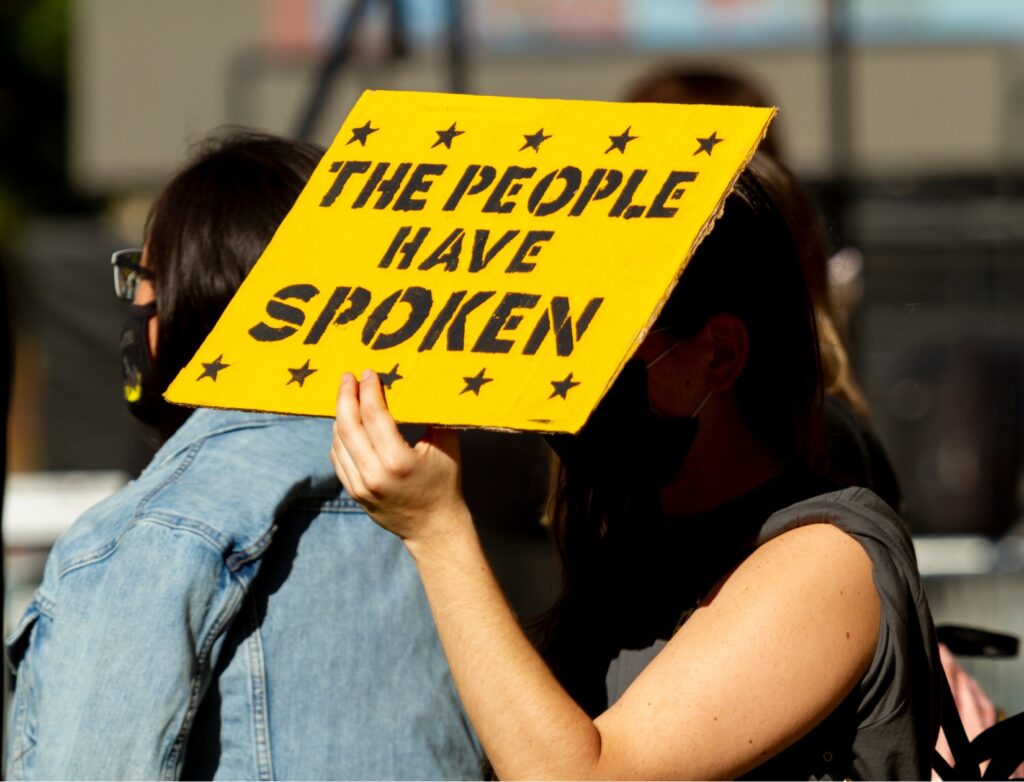
Breadths
- Philosophy and Values
- Historical Studies
- Art and Literature
How has democracy been defined across different national and historical contexts? How was it defined in Ancient Greece or during the French Revolution or the writing of the US Constitution, or in the present day in countries like Chile and Iceland? How have the primary philosophical tenets of democracy been illuminated by playwrights, novelists, and filmmakers? This cluster combines courses in political science, US history, and modern international literature to introduce students to the long history of debates about this foundational political system in multiple national contexts.
Meeting Schedule
Political Science 41: Wed 4:00-7:00 PM
History 7A: Th 5:00-6:30 PM; Discussion Wed 9:00-11:00 AM
German 39: MWF 1:00-2:00 PM
Hub Course: Political Science 41, Democracy Ancient and Modern
4 units, Philosophy and Values breadth
Demokratia, democratia, democracy. What did this term mean to the ancient Greeks who coined it, to the Romans who borrowed it, and to the early modern Europeans who discussed and reconstructed it? Who or what was the original demos, how did it rule, and how different is the form of “government of the people, by the people, and for the people” that predominates today? Focusing on a three key times and places within the history of democracy—Classical Athens, Republican Rome, and Revolutionary France—and ending with the recent attempts by Iceland and Chile to reform their constitutions by crowdsourcing and a citizen convention respectively, this course offers a chronological and thematically coherent exploration of the idea and practice of democracy, intended to broaden our imaginative horizons with respect to what democracy has been, is, and could become.
Instructor: Daniela Cammack
Wing 1: History 7A, The US from Settlement to Civil War
4 units, Historical Studies breadth
This class is required for the Legal Studies major and can also be used to satisfy a requirement for the following majors: American Studies and History. Note that other classes may also used to satisfy the same requirements for American Studies and History.
This course surveys the central ideas and events that shaped American history from the colonial period to the end of the Civil War era. Major issues to be covered in this course include the European colonization of the Americas; encounters and interactions among Africans, Europeans, and Native Americans; the formation of English colonies in North America; the development of American slavery; the origins and consequences of the American Revolution; the geographic, demographic, and economic expansion of antebellum America; Indian removal; the debate over slavery; and the Civil War and Reconstruction.
Instructor: TBD
Wing 2: German 39P, Law and Literature
4 units, Art and Literature breadth
For many people, law is the subject of law school, while literature belongs to the humanities. In this seminar, we will see that law and literature, professional school and the humanities are in fact closely related. We will read some great authors in world literature (including Aeschylus, Sophocles, Shakespeare, Melville, Kleist, Kafka), watch a number of classic films, and discuss how they engage with the key issues of law – legitimacy and legality, justice and equity, rights and obligation, crime and punishment. At the same time, we will read legal texts and see how law operates by telling stories.
No German language familiarity is required for this course, all texts will be read in English.
Instructor: Chengxi Tang